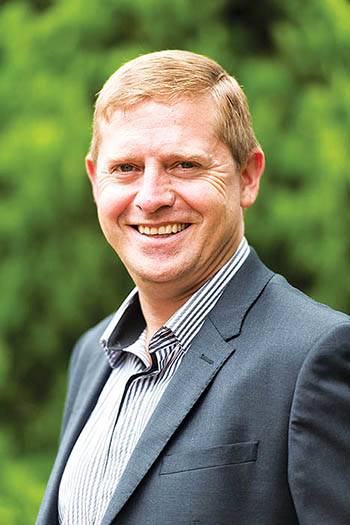Members of Australia’s peak body for agricultural professionals can seek a new level of accreditation that recognises their willingness to learn, lead and subscribe to an industry code of ethics.
The Ag Institute Australia (AIA) is offering its members and those working in agriculture the opportunity to achieve an industry-first Chartered Agriculturist (CAg) status by undertaking a new accreditation scheme.
Launched in November, the CAg scheme now sits above the Certified Professional in Agriculture (CPAg) system, which AIA will continue to administer.
“it’s best for the client, whether they’re a grower or investor, if those giving advice be chartered and subject to a code of ethics” Have you had a look at the recent news on our chartered scheme?”https://t.co/NCgZkvvykl#agchatoz@NationalFarmers@GrainGrowers
— Ag Institute Aus (@AgInstituteAus) January 24, 2019
AIA chair Dr Turlough Guerin says a meeting coordinated by AIA in April 2017, which assembled representatives from government and organisations including Crop Consultants Australia and Soil Science Australia, brought the need for the chartered scheme to light.
“As professionals, we realised the associations we were affiliated with were all struggling with the same thing, and that was to come up with an accreditation scheme,” Dr Guerin says.
“We all realise we need to lift our standing by being chartered, and not just certified, professionals.
“It’s something that every AIA board has tried to have a crack at, and this time we think we’ve got it right.”
We realised what we were doing was not enough in terms of what the market required, and industries have to learn from the scrutiny the financial and banking sector has come under.
Dr Guerin says the Royal Commission into Misconduct in the Banking, Superannuation and Financial Services Industry is giving AIA a reason to act.
“We realised what we were doing was not enough in terms of what the market required, and industries have to learn from the scrutiny the financial and banking sector has come under.”
The chartered scheme requires applicants to have a CPAg or equivalent from a professional association, and a minimum requirement of a master’s degree in agriculture or equivalent.
It also offers a pathway to accreditation for professionals without postgraduate qualifications.
“That alternate pathway might be experience leading a research team, drafting a submission to a government inquiry, or government board experience, and we’re setting up a reviewers’ panel with AIA and industry members to look at that.”
Successful applicants will have to demonstrate their achievements in six standards of professionalism and pass the requirements of an ethics exam, as well as be able to demonstrate their ability for reflective learning.
Initial certification will entail an application fee, an annual registration fee and ongoing professional development in subsequent years to maintain the chartered qualification.
Dr Guerin says professional indemnity will not be covered by the scheme, largely due to the diversity of work carried out by those working in and around agriculture.
“Insurance companies have said that if a couple of years’ worth of members come through the scheme, they might then be interested in lowering professional indemnity premiums, because they see having chartered instead of just certified professionals as being a risk-mitigation strategy.”

Ag Institute Australia chair Dr Turlough Guerin. Photo: Richard Bulley
He says professionals interfacing with agriculture through fields such as accountancy, information technology, safety and human resources could also apply for chartered accreditation.
“It’s really about providing assurance and comfort to clients that you’ve got the cognitive ability and the grit to tackle problems.
“We believe it will better service growers by helping them make better decisions and help the industry that supports them by building its credentials.”
AIA was founded in the 1930s at the University of Sydney and today has about 1000 members, including academics, consultants, advisers, and small and medium-sized enterprises.
Prohort Management consultant Paul Geurtsen, based in Wagga Wagga, NSW, has been an AIA member since 2000, and specialises in irrigation-based industries.
“What the royal commission brought up for banking and finance could relate to any sector with links to private or large-scale investment, and my take is there is an ongoing need for a higher recognition of professionalism in agriculture because of this,” Mr Geurtsen says.
“I’m coming across a lot of people giving a lot of advice, and it’s best for the client, whether they’re a grower or an investor, if those people be chartered and subscribe to a code of ethics.”
He says agriculture’s interface with water and energy use are among the areas that are becoming increasingly complex, and ongoing professional development as required under the chartered scheme will help ensure members are abreast with changing thinking and practices.
“As an adviser, you are entitled to ask what returns this chartered accreditation will give you, and it’s really about the value you place on your morals and your ethics.”
More information: Dr Turlough Guerin on 0439 011 434 or chair@aginstitute.com.au























































